“There’s definitely an interest in BIKETOWN, but accessing it is still a barrier for a lot of people.”
-André Lightsey-Walker
Last Friday, transportation advocacy non-profit The Street Trust (TST) held their first event in a series of group rides to help new people get comfortable riding around the city using Biketown, Portland’s electric bike share program. These rides are part of the recent partnership between the two organizations to leverage TST’s outreach with the bike share program’s financial resources (it’s managed and sponsored by Lyft and Nike respectively, in partnership with the Portland Bureau of Transportation) and paint the town Biketown orange – or at least get a few new people signed up for the program.
TST and Biketown want to bring more people into the Biketown for All program, which makes it almost free to use the bike share service for people who make below a certain income and meet the criteria for assistance programs like SNAP or FAFSA. But many people who are eligible to join the program may not know they qualify for it or even how to use the bikes at all. André Lightsey-Walker, TST’s Policy Transformation Manager who’s heading the Biketown partnership, said he was able to sign one new person up for the service at Friday’s ride.
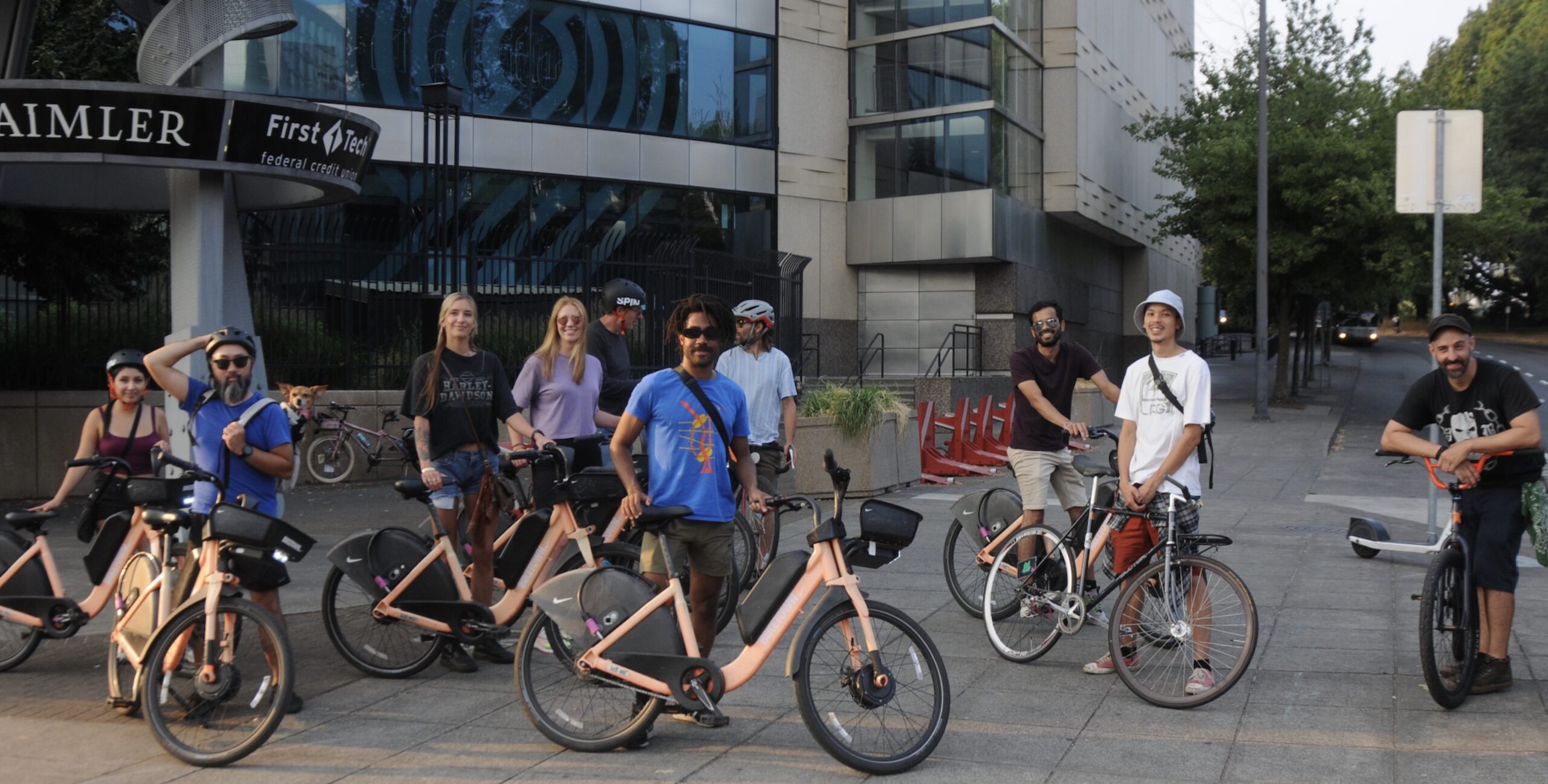
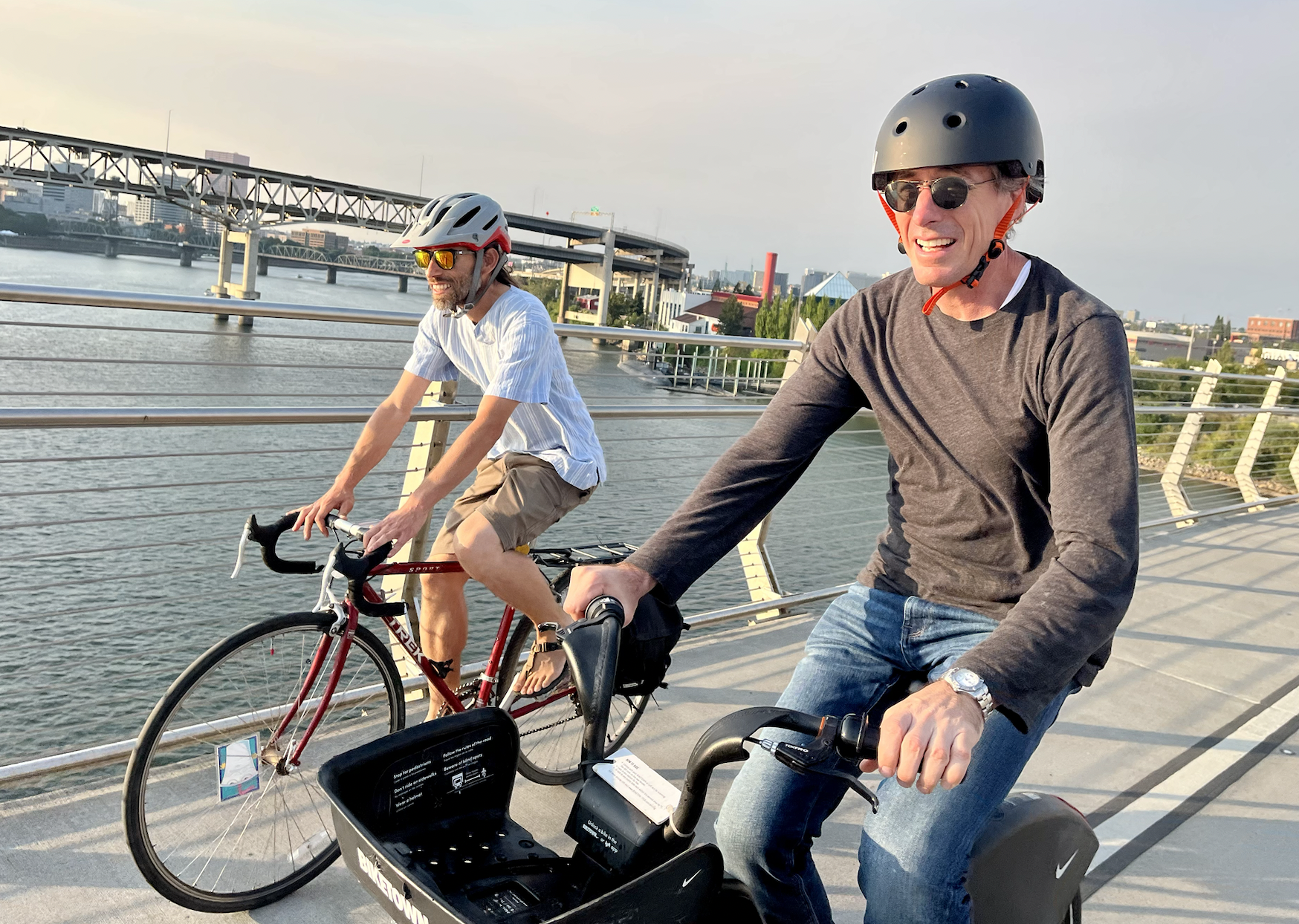
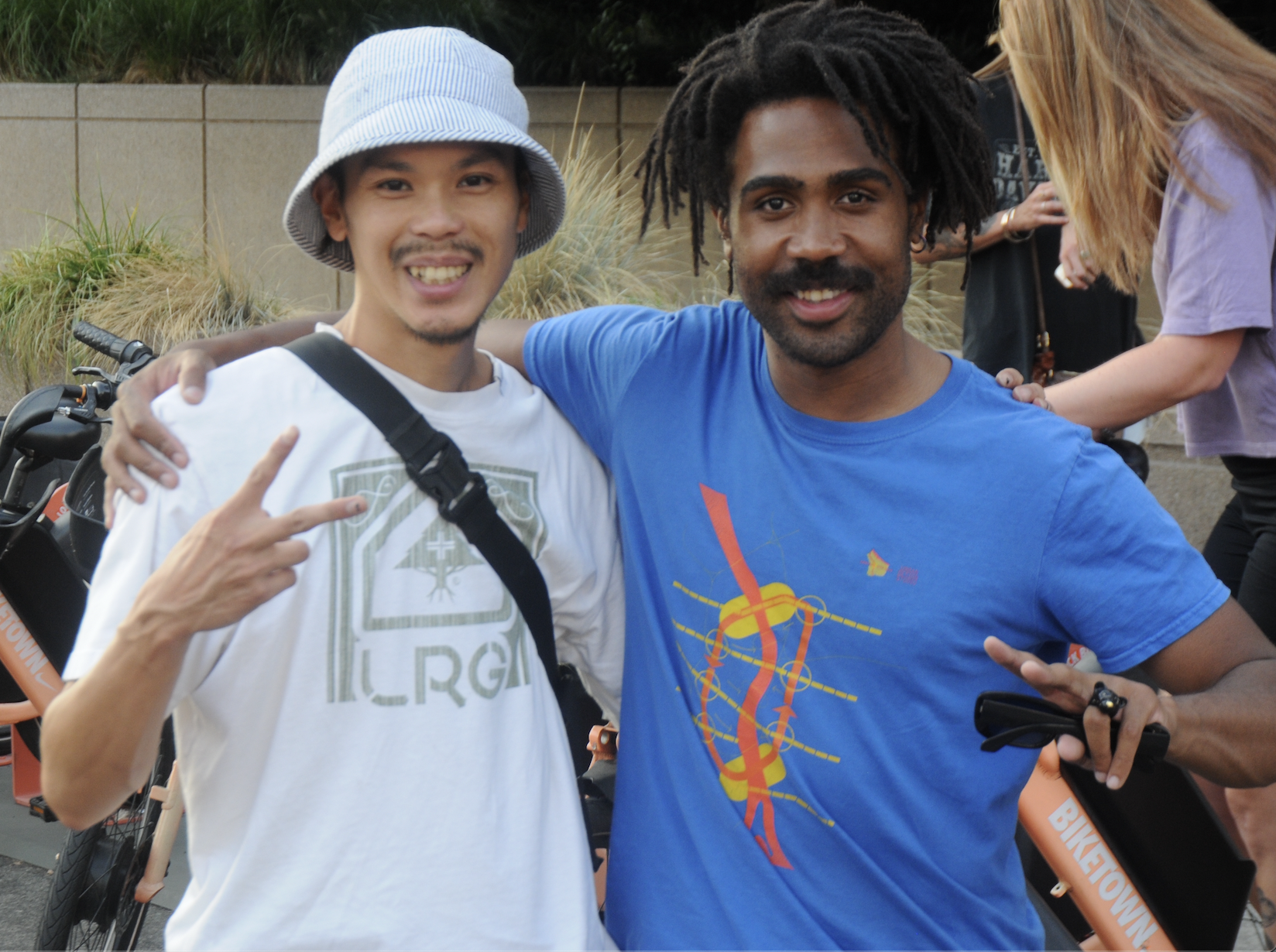
About 10 people showed up for the ride, which was a relaxed loop around Portland’s central city meant to ease people into the experience of using Biketown. I tagged along and talked to a few people who used the bike share service for the first time that day.
Lightsey-Walker planned the ride route to be (mostly) car-free so people could ease into the experience as much as possible. The group met near the Moda Center and biked south via the Eastbank Esplanade before heading across the Willamette River on the Tilikum Crossing. From there, we made our way back up north using the Naito bikeway, crossing the river again using the Steel Bridge lower deck.
One of the people at the ride was a man named John Bernstein. Not only was this Bernstein’s first time on a Biketown e-bike, but he said it was also his first time riding any bike in 20 years.
“The more people TST can support in shifting from driving alone to e-bikes and bike sharing, the more voices we’ll have in our movement for increasing e-bike and bike share funding and expansion.”
– Sarah Iannarone, The Street Trust
“I feel like a kid again! I’ve rediscovered my youth,” Bernstein told me. When we made it to the end of the loop, Bernstein was so thrilled by the experience he didn’t want to stop, so he headed off to that evening’s Friday Night Ride to keep trying out his newly-rediscovered bike legs.
Seeing this kind of reaction is awesome. But there’s one potential problem: as we’ve covered in the past, some Portland bike advocates are concerned there aren’t enough shared bikes to accommodate all the people who want to use them.
The Biketown rental rack at the Moda Center was well-stocked, but I passed several empty stations on my way to and from the ride, and I have a hard time squaring that with the desire for an ever-expanding user base. But TST and Biketown staff have expressed optimism about the program despite what many think may be a supply shortage.
In July, TST director Sarah Iannarone told me she thinks with more public interest in bike share, increased program funding (and thus more bikes) may follow.
“The more people TST can support in shifting from driving alone to e-bikes and bike sharing, the more voices we’ll have in our movement for increasing e-bike and bike share funding and expansion,” Iannarone wrote in an email. “Engaging and empowering riders from historically underserved communities to lead these conversations will be critical to ensuring that e-biking and bike sharing really works for the Portlanders who need it most.”
TST has now had the chance to gauge community response at last week’s ride. When I asked Lightsey-Walker how he thought it went, he was enthusiastic.
“Personally, I’m feeling great about the ride. I think it highlighted that there’s definitely an interest in BIKETOWN, but accessing it is still a barrier for a lot of people,” he said. “I think as the program continues we’ll get more clarity about what the most significant barriers to access are (and how they vary from community to community) and hopefully, we can work with Lyft, PBOT, and BIKETOWN to secure investments and resources to alleviate those barriers.”
The next TST/Biketown ride will be this Friday’s El Grito ride. That event will be co-led by Peter Do, who is one of the newly-appointed Biketown Ambassadors working with TST to act as a community liaison and further their outreach efforts.



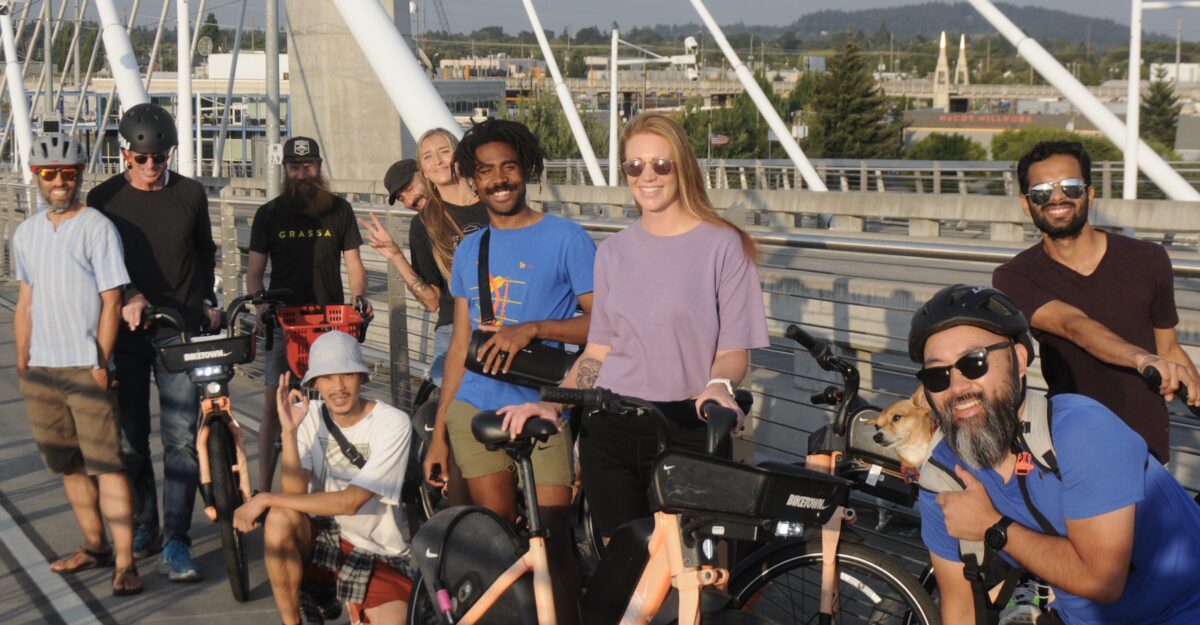
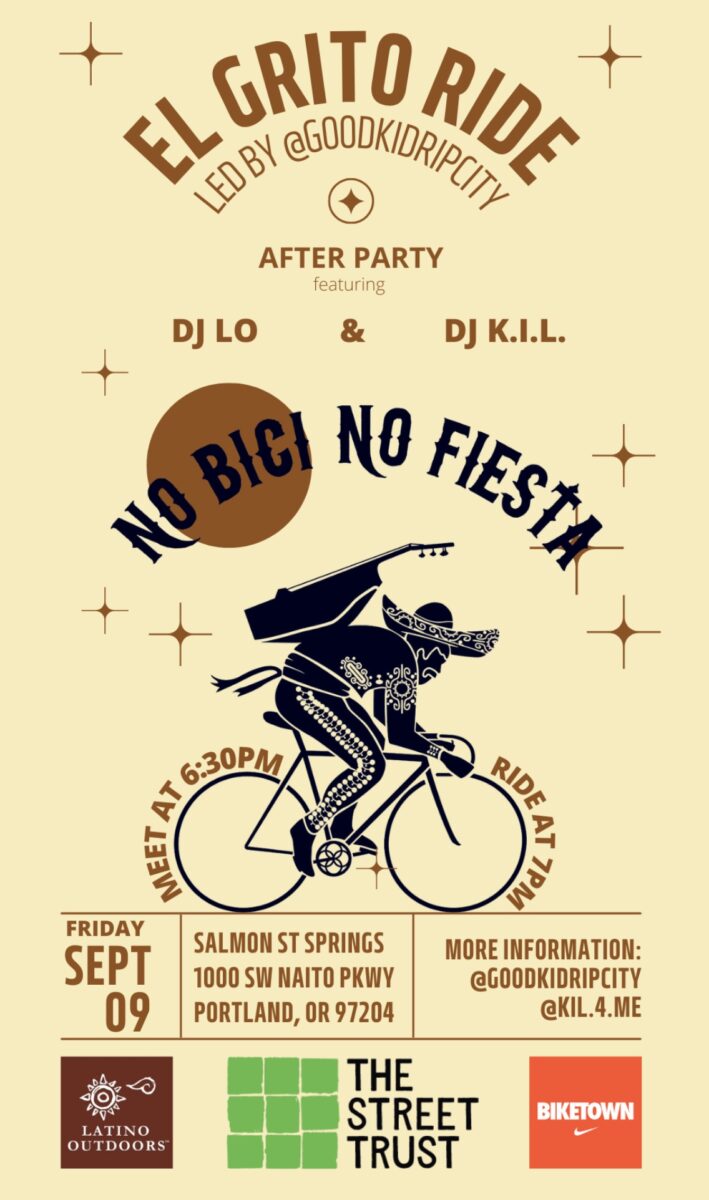
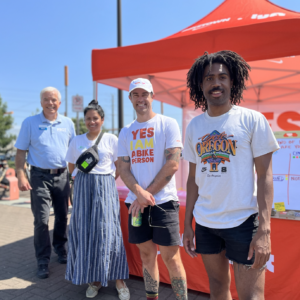
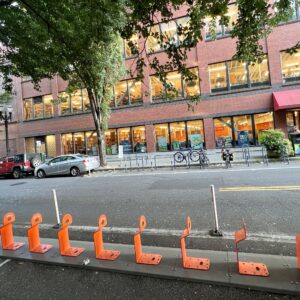
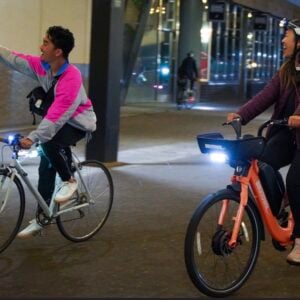
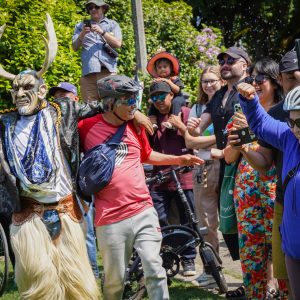
Thanks for reading.
BikePortland has served this community with independent community journalism since 2005. We rely on subscriptions from readers like you to survive. Your financial support is vital in keeping this valuable resource alive and well.
Please subscribe today to strengthen and expand our work.
When will Biketown be getting more bikes? The bike density is too low for this service to be effective.
No timeline yet that I’m aware of. PBOT is staying mum but the writing seems to be on the wall. I have a hunch TST and PBOT are biding time and building the political will for an ask that will come relatively soon. It makes 100% sense on a political level to make some sort of financial ask around these bikes. I’ve been wanting to write an op-ed about it for weeks now and just haven’t put it together
Maybe they’re all in inner SE. I feel like you can’t go more than 3 blocks without seeing at least 1. Whenever I use them the hub location where I’m going is usually completely full and I have to lock it somewhere else.
Some areas have very good bike density. Look further out (places like Woodlawn and Laurelhurst, or in outer-east Portland and you’ll see that many residents would have to go 1/2 mile to get a bike. Hard to justify the added cost vs. walking and taking the bus (or driving if you have a car) at that point. Maybe some of these areas shouldn’t be part of the program until we have enough bikes.
Amazing that the organization formerly know as the Bicycle Transportation Alliance is now working to funnel profits to Lyft — Biketowne’s operator.
Lyft, a taxi company whose operations have been shown to increase congestion and emissions in our cities.
Lyft, a venture capital backed startup that spent millions on Prop 22 in CA to keep workers from being classified as employees– and therefore eligible for benefits and other compensation & protection that traditional jobs enjoy.
Lest we forget, amongst all the greenwashing and back-patting.
To be fair, I don’t think Lyft is actually making any money on this. They are barely making money overall.